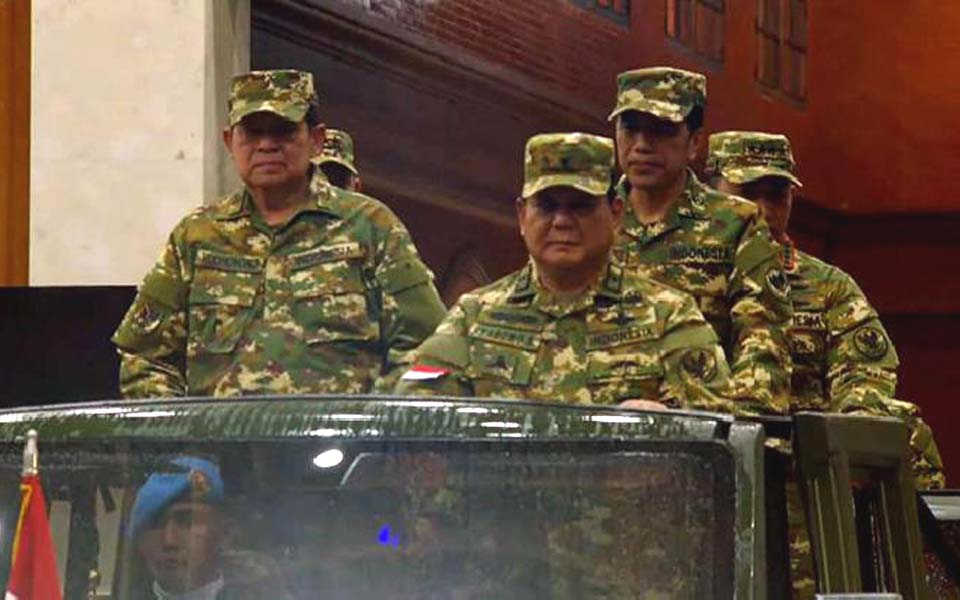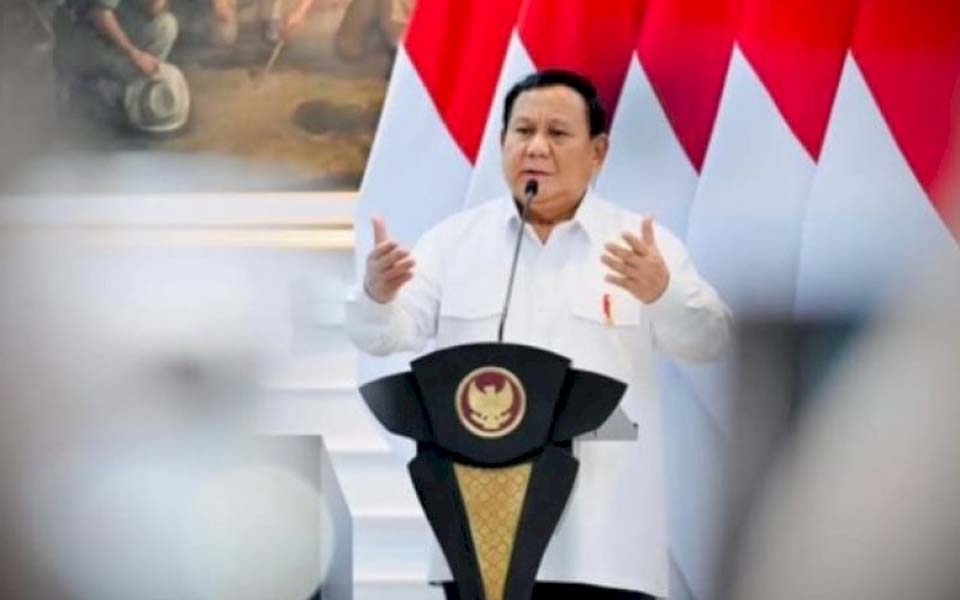Jakarta – The election monitoring group Association for Elections and Democracy (Perludem) is predicting that there will be 31 regions where there will be sole candidates in the 2020 elections of regional heads (pilkada).
The 31 regions consist of 26 regencies and five municipalities including Semarang city (incumbent), Solo city (President Joko “Jokowi” Widodo’s eldest son Gibran Rakabuming Raka), Kebumen, Grobogan, Sragen (incumbent), Wonosobo, Ngawi, Wonogori, Kediri and Semarang regency.
Then there are the regencies of Blitar, Banyuwangi, Boyolali, Klaten, Gowa (Adnan Puruchita), Sopeng, Pematang Siantar, South Buru, Balikpapan and Sitoli Mountain.
Perludem predicts that there may well be additions to this bearing in mind the process of selecting candidates will continue until September.
Many consider regional elections where sole candidates or a single ticket stands as a “threat” to democracy. Perludem Executive Director Titi Anggraini says that while sole candidates are usually a result of political deadlocks, this stands in the way of competition in democracies.
“A pragmatic electoral orientation to win pilkada is most dominant. In the end what happens is buying up wholesale support. While building political bargaining to obtain certain incentives or political benefits”, Anggarini told CNN Indonesia by phone on Wednesday August 5.
Based on Perludem’s data, there were only three sole candidates in 2015. They were the Rijanto-Marhaenis UW ticket for Blitar regency, the UU Ruzhanul Ulum-Ade Sugianto ticket for Tasikmalaya regency and the Raymundus Sau Fernandes-Aloysius Kobes ticket for Timor Tengah Utara. All of these sole candidate tickets were incumbents.
In 2017 there were nine sole candidates and in 2018 there were 16 sole candidates.
Law Number 8/2015 on Elections stipulates that if only one ticket registers for a regional election then the election is postponed until the next round of simultaneous regional elections.
It is this stipulation which is taken advantage of by challengers who intentionally don’t back a candidate so the incumbent can run uncontested and hold on to their seats.
Concerns over this situation led to a judicial review being launched but the Constitutional Court in ruling Number 100/PUU/XIII/2015 declared that sole candidates are constitutional.
In the years since, sole candidates have become rampant. Aside from locking up the election from the start, said Anggarini, the heavy requirements for nominating a candidate is one of the triggers for the appearance of sole candidates.
This includes, among other things, the support of 20 percent of seats in a Regional House of Representatives (DPRD) or 25 percent of the vote in the DPRD along with the heavy and costly requirements to become an independent candidate.
“This isn’t something that’s easy for a political party”, she said.
The option of joining with other political parties, according to Anggarini, is also not easy, highlighting the issue of what is known as political dowries (mahar politik) – a price paid to a political party or coalition of parties to ensure their backing.
“Joining with another party is not something that is easy. There is for example the issue of political dowries, although this is almost impossible to prove legally. This is something we all know about in regional election nominations, right”, she said.
Anggarini said she regrets that cadreisation of new leaders within the political parties has stagnated. At the same time, she continued, most of their political rivals are incumbents.
“They don’t have prominent leaders who can compete against the incumbent, so in the end what emerges is political pragmatism. There’s no need to back any candidate at all”, she asserted.
In addition to this, elections with sole candidates are also ridden with controversy and problems. The recruitment of candidates tends to be undemocratic, exclusive and secretive, and there is minimal participation by political party members and leaders, let alone the public.
Based on this, Anggarini is recommending a number of requirements be applied to the nomination of candidates. One of these is that they be a party leader with a minimum of three years experience before they can be nominated by a political party.
Exposit Strategic political analyst Arif Susanto says that the Covid-19 pandemic will play a role in the presence of sole candidates because the pandemic will have an effect on political mobility in vetting candidates.
“The pandemic will clearly deliver a blow against efforts to hold political mobilisations. That’s clear”, Susanto told CNN Indonesia on Wednesday.
Susanto, who is also a political observer from the Paramadina University in South Jakarta, said that regions with sole candidates tend to have a number of characteristics.
First, there are political parties or political figures that are overly dominant. Second, poor quality political institutions which are marked by, among other things, the centralisation of power and closed political recruitment.
Third, the unequal distribution of resources among people, and finally, weak control and social-political considerations. “This situation is not healthy for democracy”, he asserted.
Speaking in the same vein, Alvara Research Center CEO Hasanudin Ali emphasised that the presence of sole candidates does in fact undermine the quality of democracy in Indonesia.
“So the more political contestants, the people or the public are given many more choices. Meanwhile if there is only one candidates of course this will impact upon the quality of democracy which we are currently pursuing”, he said. (ryn/ain)
[Translated by James Balowski. The original title of the article was “Kualitas Demokrasi di Bayang-bayang Calon Tunggal Pilkada”.]















